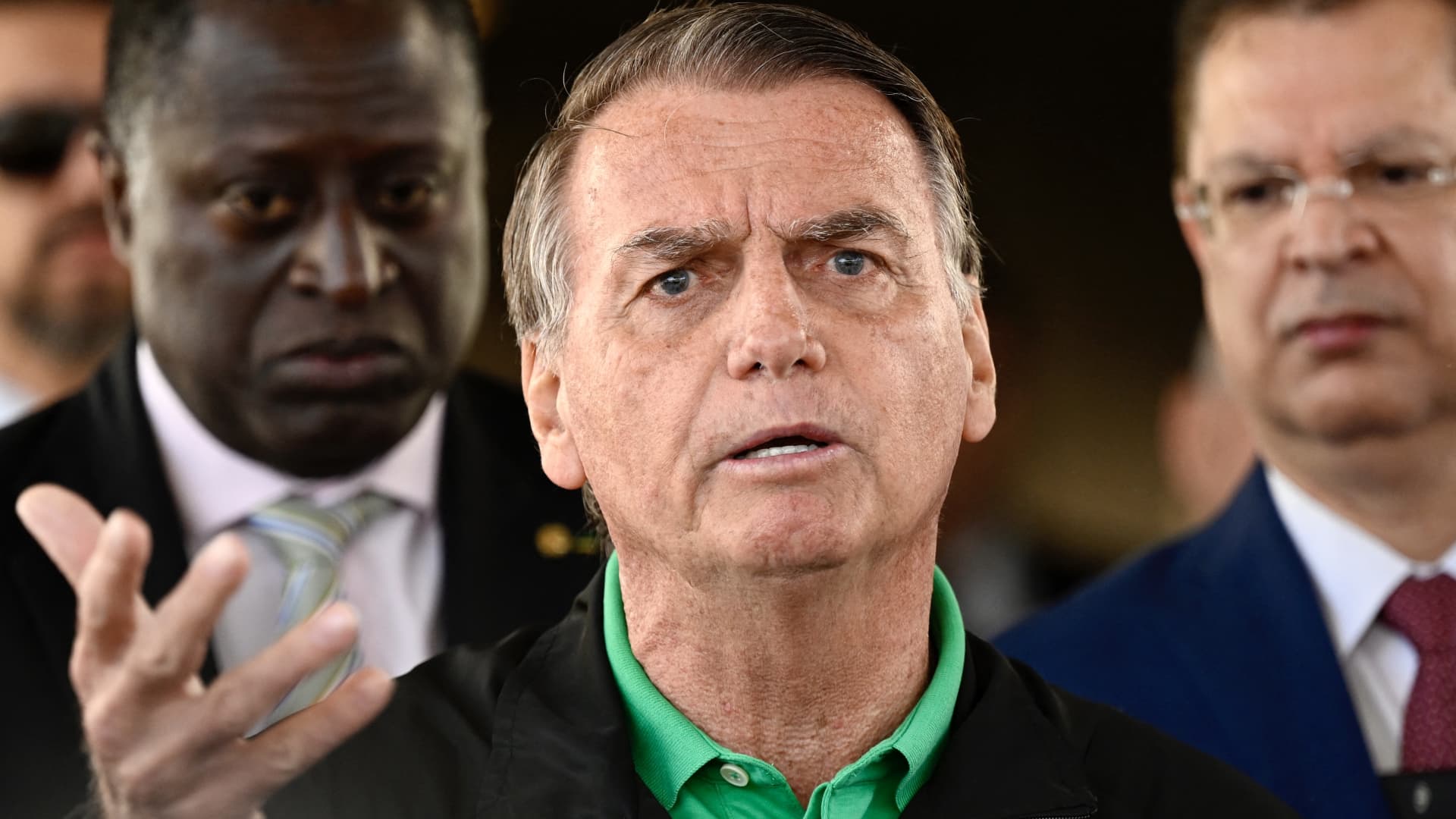Former Brazilian President Jair Bolsonaro speaks to the press at the Federal Senate in Brasilia on July 17, 2025.
Mateus Bonomi | Afp | Getty Images
The U.S. Secretary of State Marco Rubio on Thursday said the U.S. will “respond accordingly” to what he called a “witch hunt” against former Brazilian President Jair Bolsonaro, without specifying how.
The remarks came shortly after Brazil’s Supreme Court sentenced Bolsonaro to 27 years and three months in prison after being convicted of plotting a coup to overturn the 2022 election.
The conviction was “unjustly ruled,” Rubio said in a post on X late Thursday stateside, as “the political persecutions by sanctioned human rights abuser Alexandre de Moraes continue.”
The U.S. Treasury Department on July 30 imposed sanctions on Brazilian Supreme Federal Court Justice Alexandre de Moraes, who has been a target of criticism by President Donald Trump for his handling of legal cases involving former Brazilian President Jair Bolsonaro.
On the same day, Trump slapped tariffs of up to 50% on most products from Brazil for its prosecution of Bolsonaro for his alleged coup attempt, drawing a pushback from the country’s incumbent President Luiz Inacio Lula da Silva.
The Brazilian leader denounced Washington’s move as an infringement on Brazil’s national sovereignty, saying his nation “will not accept anyone’s control,” according to Google translation of his social media post.
The case against those who planned a coup is a matter solely for the country’s justice system and “not subject to any inference or threats that undermine the independence of national institutions,” da Silvia added.
He also vowed to retaliate against “any unilateral tariff increases,” rebutting claims that the U.S. has a trade deficit with Brazil. Da Silvia cited U.S. official customs data, which showed a surplus of around $410 billion in trade in goods and services with Brazil over the last 15 years.
The U.S. total goods trade surplus with Brazil amounted to $154 billion from 2010 to 2024, according to the Census figures.

Bolsonaro, a close ally of Trump, and his allies have lobbied Washington to intervene in the case on his behalf. Last month, Bolsonaro’s son, who is also a Brazilian congressman, met with U.S. Treasury Secretary Scott Bessent, reportedly to push for sanctions against officials involved in the trial.
The likelihood of a de-escalation between the U.S. and Brazil in the near term appears low, analysts at Morningstar said in a note following the ruling, noting that the bilateral relationship has hit “its lowest point in decades.”
Potential measures by Washington included further increases in its tariff rate on Brazil, removal of existing tariff exemptions and expansion of financial sanctions on members of the Brazilian government, Morningstar said. “The relationship is set to worsen before it gets better.”
The conviction ruling made the 70-year-old Bolsonaro the first former president in the country’s history to be convicted for threatening democracy.
Four of the five justices voted in favour of Bolsonaro’s conviction on charges that he sought to cling to power by plotting a military coup that included plans to assassinate da Silva.





